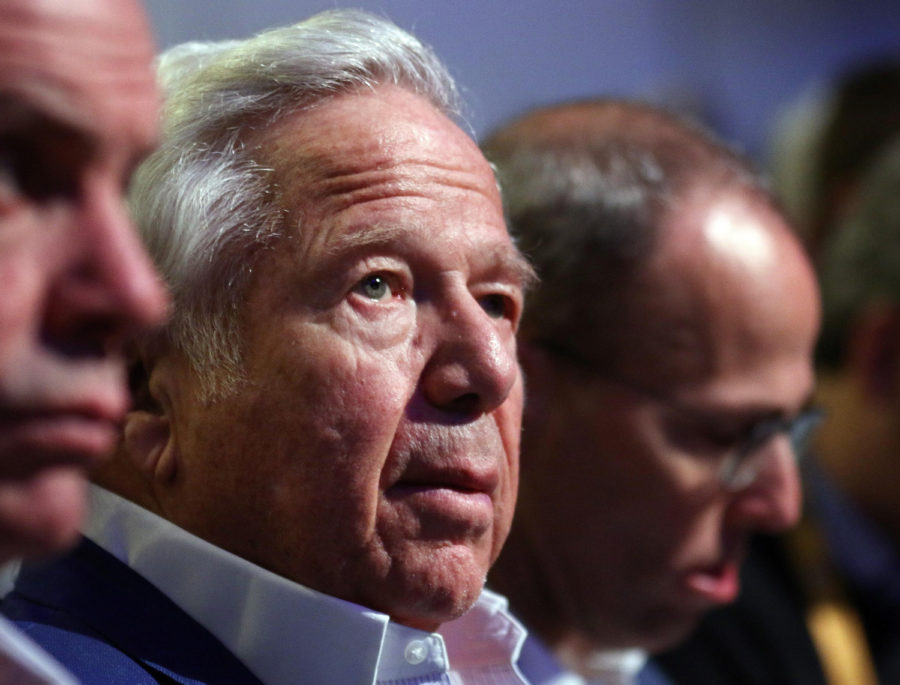Editorial: Human trafficking is a bigger problem than we’d like to admit
Robert Kraft was charged Friday on two counts of soliciting sex as part of a larger investigation of prostitution and suspected human trafficking in Jupiter, Florida.
February 24, 2019
The New England Patriots won the Super Bowl earlier this month, but their owner has recently been in the spotlight for an entirely different reason.
Robert Kraft was charged Friday on two counts of soliciting sex as part of a larger investigation of prostitution and suspected human trafficking in Jupiter, Florida. While many have focused on the billionaire’s involvement in the scandal, they’re allowing his fame to overshadow the fact that human trafficking is a widespread, serious issue that hits closer to home than expected — including here in western Pennsylvania.
The Patriots owner isn’t the sole perpetrator of the alleged prostitution and human trafficking scheme in Florida. More than two dozen businesses were connected, with at least one person charged with human trafficking, more than two dozen men arrested and hundreds who have been charged for soliciting sex through these businesses.
So while Kraft is a high-profile member of a group that includes other prominent men such as former president of Citigroup John Havens and J.W. Childs Associates founder John Childs, fixating on these men and their involvement overlooks the hundreds of people who have been involved in illegal activities that violently force women into sex as a business model.
Investigators said they believe the women who work at the massage parlors were from China, and that they thought they would be working in legitimate spas for the chance at a better life. A health inspector found them to be enslaved and living a nightmare.
“I don’t believe they were told they were going to work in massage parlors seven days a week, having unprotected sex with up to 1,000 men a year,” Martin County Sheriff William Snyder told The New York Times. “We saw them eating on hot plates in the back. There were no washing machines. They were sleeping on the massage tables.”
It can be difficult to comprehend the magnitude of such a problem, and easy to say that illegal, inhumane operations like the one in Florida are anomalies and don’t happen anywhere else. Nothing could be further from the truth.
The FBI considers human trafficking or involuntary servitude to be the third-largest criminal activity in the world. It’s also on the rise locally. According to the National Human Trafficking Hotline, 5,147 cases of human trafficking were reported in 2018, and 127 of those cases were reported in Pennsylvania. In 2012, only 91 cases of human trafficking were reported in Pennsylvania of 3,272 reported nationwide.
Nine people were arrested in Pittsburgh in December 2017 for soliciting, promoting and transporting someone for the purpose of prostitution. A month earlier, two men from Pennsylvania were charged with using violence, threats and drugs to coerce six women into prostitution. That same month, Pittsburgh police raided the Golden Tree Spa in Squirrel Hill on the suspicion of the business promoting prostitution and possible human trafficking.
This is an issue that requires more attention than just scorn for powerful men who abuse women. It requires acknowledgment that the problem is widespread and growing, and it requires communities to be vigilant in identifying abnormal situations that could point to human trafficking.



